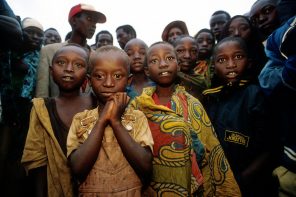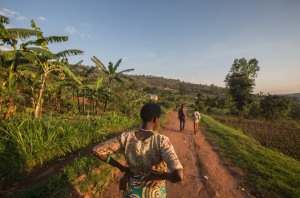Yesterday, Rwanda’s president Paul Kagame was inaugurated for his second term. I listened to his speech on the radio, much of which was in English. As he closed, he said to Rwandans, “My fellow citizens…”
It caught my ear because I’d been talking to a friend whose daughter just changed schools. Last year, her daughter went to an ordinary local school about an hour outside of Kigali. This year, she’s going to a private boarding school that verges on elite. When her mother visited her two weeks into her first term, she said, “Mom, I can never go back to that other school. Those kids were all abaturaje.” (It’s worth pointing out I’m spelling this phonetically.)
My friend was trying to explain this term to me. She struggled for the right English word. Ordinary? She agreed but said it was also more negative. Backward? I suggested. She nodded. Unsophisticated? She nodded.
“Ah,” I said. “The word you’re looking for is redneck.”
This is one of the words that can only be used by people who can claim membership in the group the word describes, and so I rush to remind you that I am from West Virginia.
We both laughed. But recently my friend told me, “You should know that abaturaje has two meanings. It can mean something negative like redneck in a certain context, but it also means citizen. Local leaders addressing people might say to them, ‘My abaturaje…’”
And so as Paul Kagame bid his countrymen adieu with precisely that phrase, but in English, I suddenly had a flash of Barack Obama, perhaps on the campaign trail for some especially vulnerable Democrat in my old part of the country, tying up a speech by saying, “And so, my fellow rednecks…”



